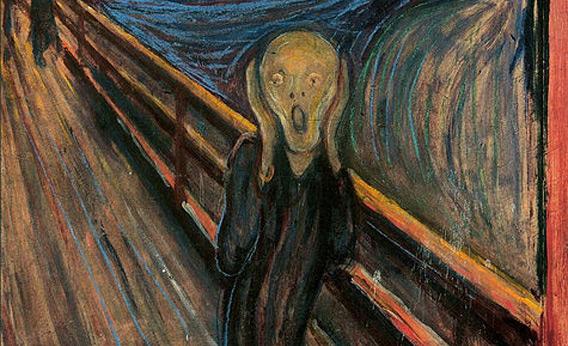The Scream. Edvard Munch 1895.
The ‘Change.’ A time for ‘hysteria.’
I kid you not.
All joking aside, if you trace the history of the menopause, it has long been associated with loss, decline and decay, something is abhorred and shunned in society. And as I wrote earlier this year, in “response, marketers and the media have perpetuated and pathologized what author Louise Foxcroft (in her book, ‘Hot Flushes, Cold Science’) refers to as “one more feature in a woman’s linear life history, an inevitable and natural phenomenon, one more thing to negotiate and nowhere near as astonishing or potentially problematic as pregnancy.”
Even the British Medical Journal has been in the game, publishing a piece in 1937 that highlights how profound an impact the ‘Change’ can have a woman’s ability to function:
“Practically every menopausal woman becomes aware of certain mental clumsiness, an inability to cope with the ordinary problems of daily life, and a tendency to “give in.” The realization of her shortcomings is worrying, and she readily becomes depressed. Emotional instability is well defined, and the patient reacts to trivial situations with rather surprising attacks of laughter or tears. She is subject to rapid and frequent changes of mood: at one moment she will be unbearably irritable, at the next, pathetically contrite. There may be marked changes in personality and severe attacks of mental depression, sometimes lasting for days, during which the patient may become suicidal. A condition of hypochondriasis, which is particularly distressing to those around her, may develop out of the complicated syndrome, even in the milder cases, and persist for the remainder of the patient’s life.”
No wonder pharmaceutical manufacturers started pushing thorazine and benzadrine.
If wandering around in a drugged out state doesn’t calm you down or pep you up, the general 1937 approach might. In fact, I am of the mindset that modern medicine may need to take a page from 1927 clinician Dr. PMF Bishop:
“Assistance can be rendered by the members of the patient’s household. Her husband and relatives should be told that she is passing through a difficult phase of life and that they should therefore be tolerant and sympathetic in their dealings with her. She should be shielded as much as possible from domestic worries, and sometimes a holiday away from her household duties is beneficial, thought i may be harmful if she is a woman of forceful personality who will worry over the conduct of her home in her absence. She should be encouraged to pursue any hobby which will prevent her from becoming introspective about her condition. She may suffer from a secret fear that her symptoms are due to cancer, and it is wise for her doctor to reassure her specifically on this point.”
So, what is the point of my Monday musing? Menopause is still viewed as an hysterical condition in many circles. The trouble is, the recommended solution is HRT (mind you, even Dr. Bishop writes about estrogen replacement) and rarely do practitioners recommend that the woman simply take a long holiday away from the stressors of her mind and body. Relaxation can help; I’ve shown you the data on Flashfree time and again.
Just think if someone could put THAT in a bottle.







